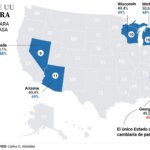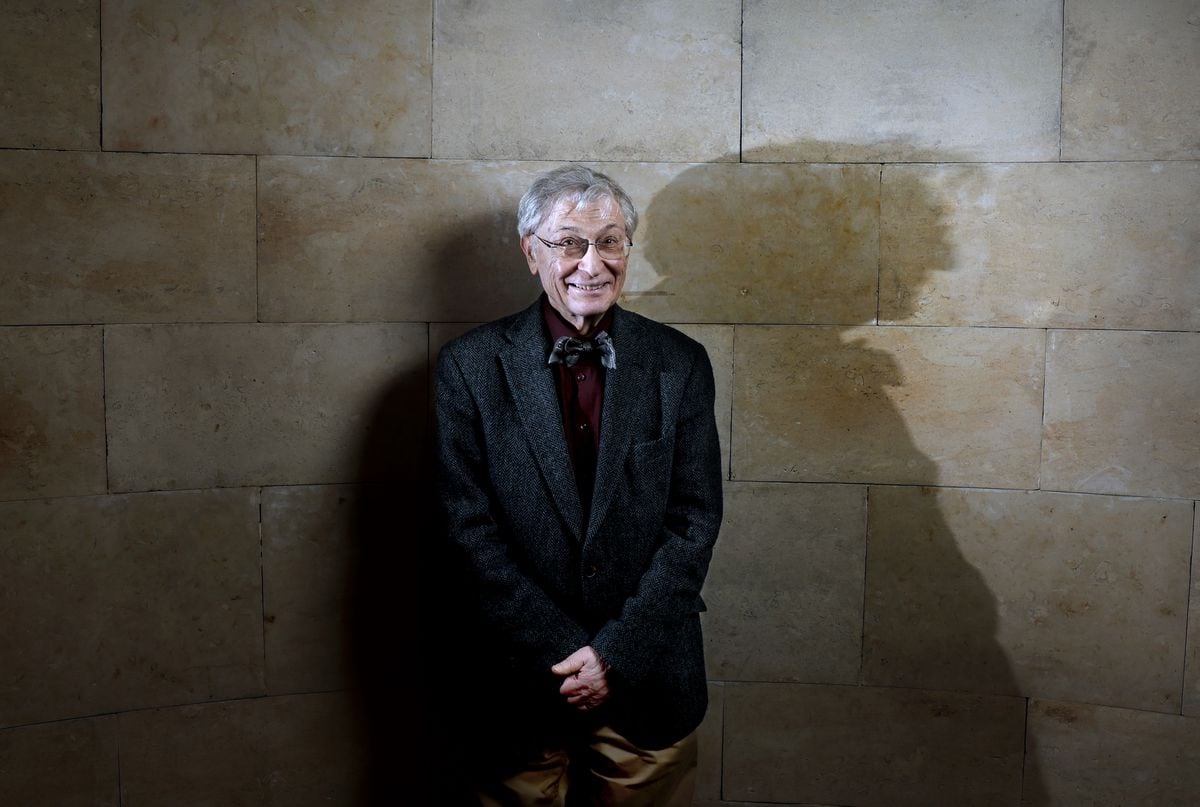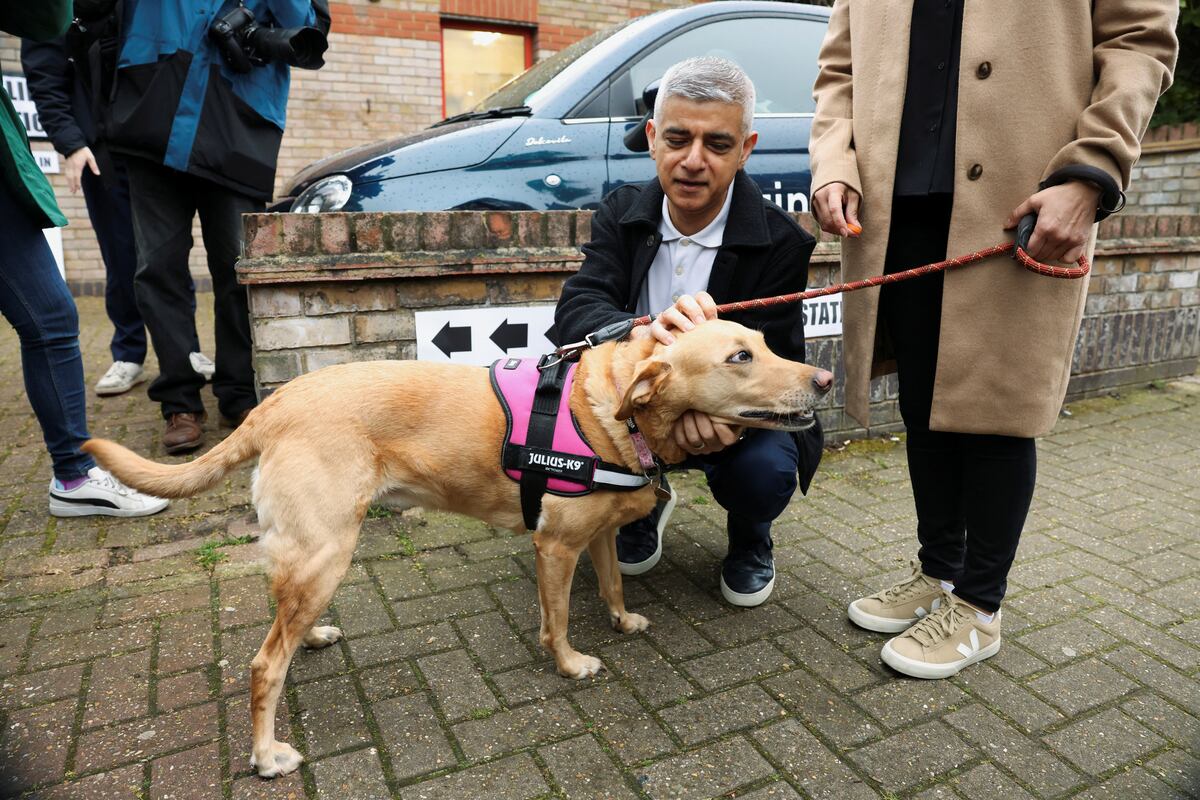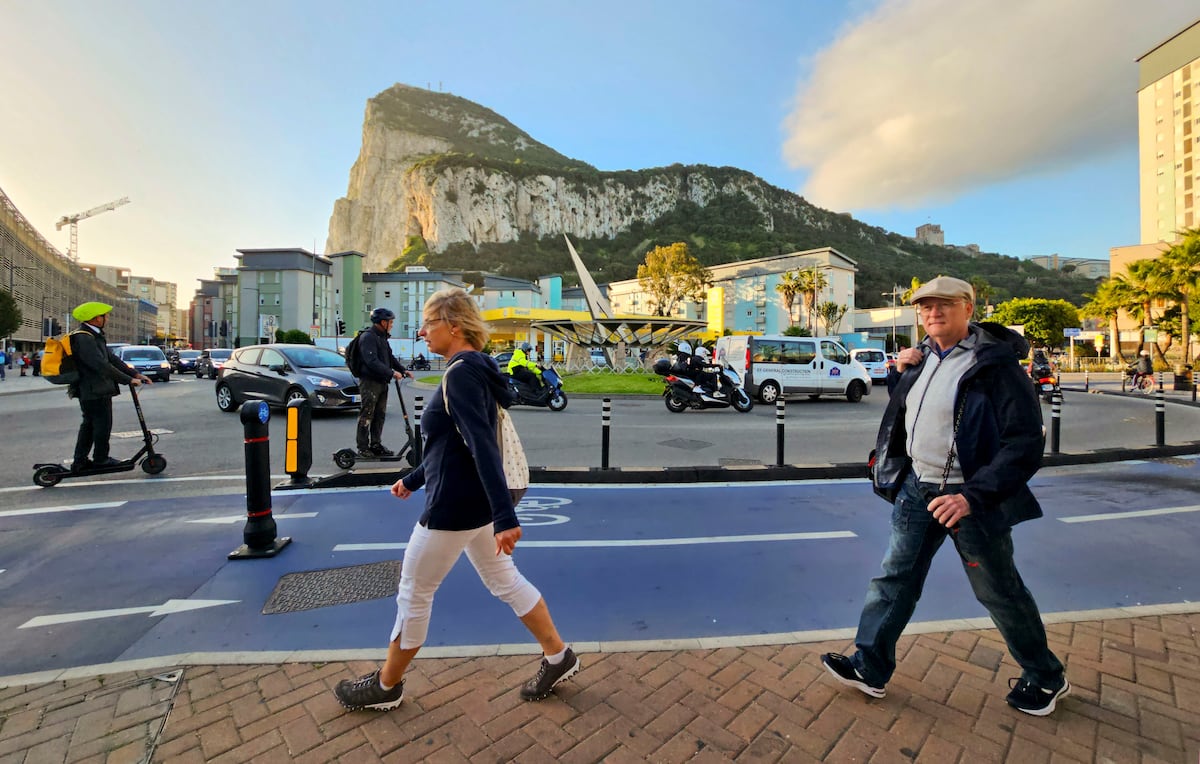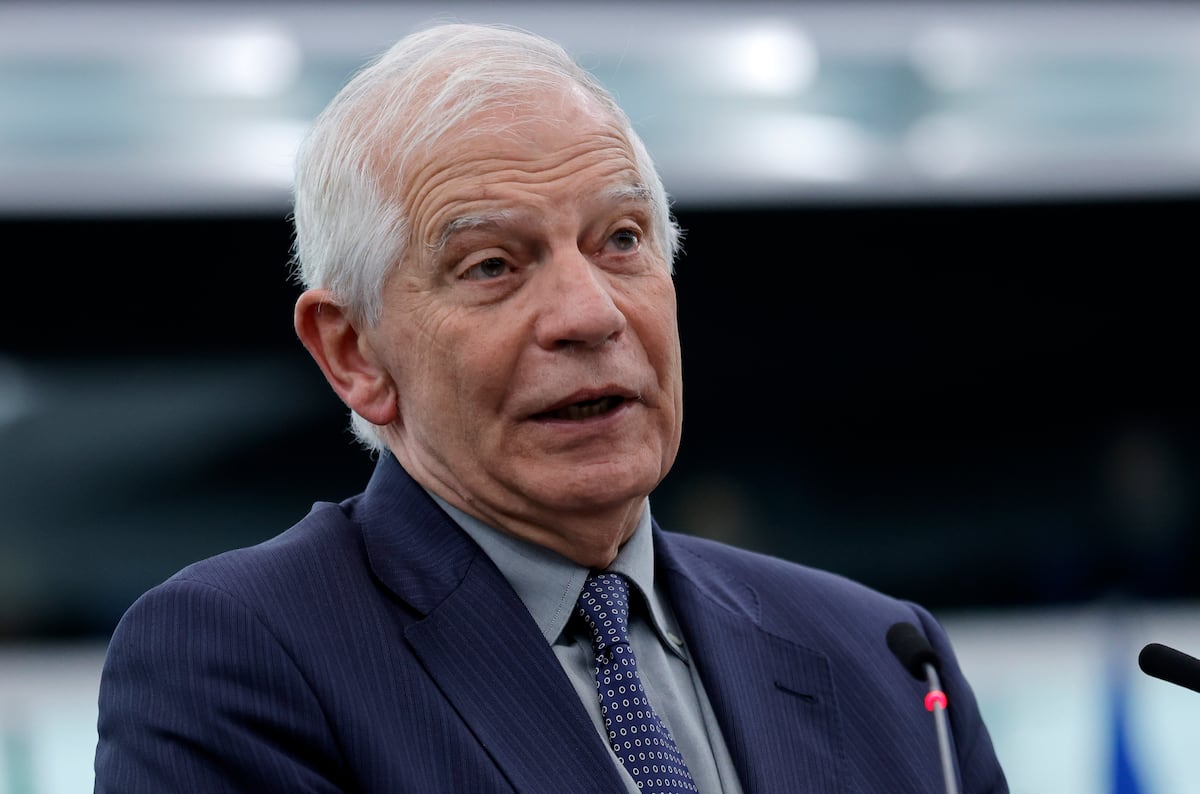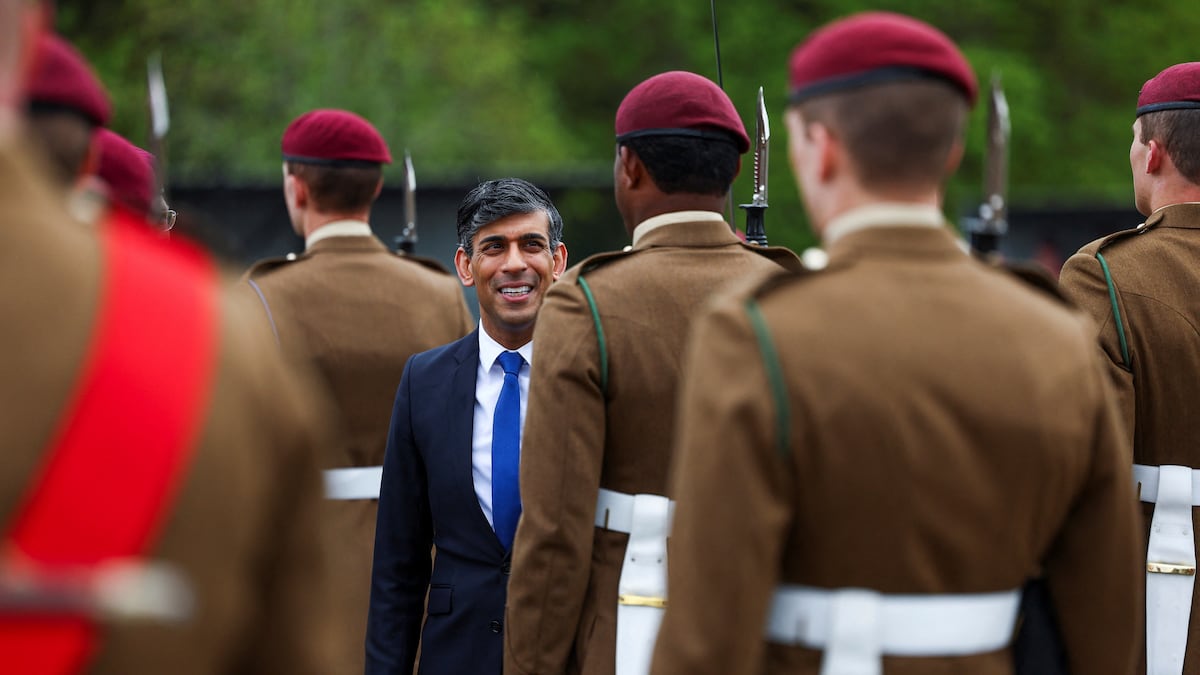“At one level, the announcer reported that the tanks have been going up Atocha to crush a strike. It was not true. The falsehood made such an impression on me that I’ve not forgotten it,” writes Ángel Viñas in his newest e-book, The making of a historian (Criticism), the place, at 83 years outdated, he collects his nice contributions to modern historical past and the way he arrived at them. He was a toddler that day who, searching the window, found grownup lies, with an viewers and goal, however he remembers the affect of the discovery as a result of he ended up constructing knowledgeable profession on it. The stage of wanting to confirm every thing for himself was inaugurated, which in the future would lead him to delve into the German, Soviet, British, Italian, Spanish archives… to dismantle Franco’s story about the Civil War and the dictatorship.
His father, a shopkeeper, wished him to be a tax inspector. “Then taxes have been determined by an ‘goal estimate’ technique that was something however goal and ended with my mom crying in the retailer, so my father thought that by placing me in there I might soften up my future colleagues so they would not be so powerful on small retailers.” Viñas obeyed, kind of. He handed the State Commercial Technician examination, however a keep in Germany activated the economist’s conversion to a historian. After working at the IMF in Washington, at the starting of 1971 he arrived in Bonn as a industrial attaché. Enrique Fuentes Quintana, director of the Institute of Fiscal Studies, proposed that he take the alternative to examine the financial relations between Germany and Spain throughout the Civil War. “When I began taking a look at the recordsdata I believed, ‘This is my factor!’ He fascinated me. At that point, earlier than the Germans, I used to be a Franco diplomat, in order that they gave me full entry. Furthermore, individuals from the safety service, the army, the SS have been nonetheless alive then… Some advised me that they did not bear in mind something, however others did.”
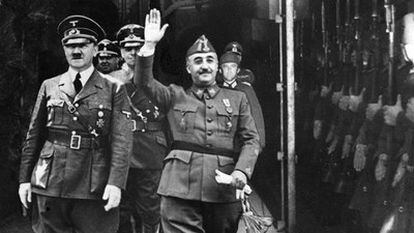
First line of investigation: Hitler’s assist to Franco
“In the Berlin Document Center I discovered the private file of a member of the Nazi occasion, Johannes EF Bernhardt, who, with one other comrade, introduced Franco’s request for assist to Hitler in July 1936. I wrote to him in Argentina, the place he lived at the time, He advised me that he was going to come to Germany and we met in July 1972. At that point I used to be fairly younger as a researcher, and he exaggerated his position a bit of. But it grew to become clear to me that the theses introduced up to that second a couple of earlier settlement between the Third Reich and the conspirators in opposition to the Republic belonged to the realm of legends. Hitler was not eager about Spain. What occurred is that after the occupation of the Rhineland, in March 1936, it was in a interval of euphoria, of accumulation of energy, and seeing papers and extra papers, I got here to the conclusion that at the moment it was in search of to strengthen its place in opposition to France. That’s when Franco’s request seems. Hitler sees the alternative, by serving to Franco, to have his assist in an eventual confrontation with France, which he already wished then. Over the years, I grew to become extra subtle on this strategy, with Mussolini’s strategy to Hitler, how support is organized, who participates…”
The Hispanist Paul Preston, writer, amongst different reference works, of Franco’s biography and the e-book The Spanish Holocaustsays that he found the Spanish historian thanks to that first investigation: “My instructor, the nice Herbert Southworth, wrote to me to announce the publication of an revolutionary e-book, Nazi Germany and July 18 (1974) from an economics professor, Ángel Viñas. When I learn it, I completely agreed: it was a e-book that radically modified the understanding of the worldwide dimension of the Spanish Civil War and I revealed a glowing assessment of the e-book in the literary journal of the Times.”
Who wished the Civil War?
“It was,” Viñas continues, “the million-dollar query as a result of the conspiracy of July 18 was not as we had been advised. The 1936 coup d’état occurred underneath false pretexts of Sovietization or a communist coup in Spain and with fascist assist, however from Mussolini, not Hitler. The Duce wanted the Spanish monarchists who from the first second conspired in opposition to the Republic, and these, in flip, the assist of the dictator. Evidently, the energetic half was the first, since Mussolini didn’t put Spain in his sights till he achieved his foremost goal: the conquest of Abyssinia. As quickly as he achieved this, he paid consideration to monarchical calls for. It didn’t take him greater than two weeks to implement them after the contracts of July 1, 1936 (to provide planes and weapons to the Spanish insurgents). That is why the historical past of the Civil War can’t be written with out documentation from overseas archives.
Moscow gold and the Negrín papers
“This matter accompanied me for not less than 30 years,” recollects Viñas, who celebrates having “dismantled Franco’s mythology and contributed to the rehabilitation of Juan Negrín,” whom Indalecio Prieto’s PSOE expelled in 1946, accusing him of being a puppet of the USSR and having despatched the gold of the Republic to Moscow and to which the occasion symbolically returned the card in October 2009, 5 many years after his dying. “The dictatorship spent its life denouncing the ‘theft’ of gold,” recollects Viñas, “however in the departmental archives of the Bank of Spain I discovered a deposit of diamonds. From the first second of the rebellion, the republican authorities had begun to promote gold to the Bank of France. But they would not let me see the Negrín file. At a dinner with the governor of the Bank of Spain I made him look dangerous. After telling me off, they lastly took it out of a secure and let me look at it. And there you see that the gold is bought. Later, paying for my journey and analysis out of my very own pocket, I consulted the Soviet archives. I used to be fortunate as a result of in New York I had met the Russian Foreign Minister, Lavrov, and he gave me permission to see them. Later, with Negrín’s papers in hand, I demonstrated that the concept was his, that he satisfied Largo Caballero and with him the relaxation of the authorities; that, as well as, he had tried to promote gold in London… Also, that it was obligatory to break the siege that worldwide banking had imposed on the Republic, with dangerous tips however overwhelming effectiveness. “The defeat of the Republic would have been a lot faster if we had not made dramatic, however important, selections to not give up our arms.”

At the starting of the nineties, he was provided to go to New York, the United Nations, or Buenos Aires, and the diplomat Viñas selected the first metropolis to fulfill the historian Viñas as a result of Juan Negrín’s son lived there and he hoped to persuade him to let him. see your papers. Once put in, he verified that after the dying of his spouse, he had moved to Nice. Still, he went to see him and insisted, with out success. When Juan Negrín Jr. died, the paperwork handed into the arms of Carmen Negrín, in Paris. The granddaughter of the final head of Government of the Second Republic allowed this newspaper to entry the secret archive in 2008 and of course additionally to Viñas earlier than digitizing all the paperwork and depositing them in the Juan Negrín Foundation of the Canary Islands and in the Documentary Center of Memory History of Salamanca. “On uncommon events have I felt a lot emotion trying to find paperwork,” she recollects. Among them, he discovered “a replica of an settlement, signed by the secretary of the Council of Ministers of the Republic on October 6, 1936, which approved the president, Francisco Largo Caballero, and the Minister of Finance, Juan Negrín, to take all the measures they thought-about acceptable to save the relaxation of the Bank of Spain’s metallic reserve. I had in my arms clear and conclusive proof that Negrín had not acted at his whim when deciding to switch the gold from Cartagena to Moscow. This was a press release that the dictatorship had aired as proof of the desperation of Franco’s nice opponent throughout the Civil War.”
The secret clause of the pact with the US
“In a really skinny file, inside a voluminous file full of industrial operations that didn’t appear fascinating,” Viñas discovered a secret clause of the “defensive settlement between the Governments of Spain and the United States.” It stated: “In the occasion of apparent communist aggression that threatens the safety of the West, US forces might make use of the areas and services positioned in Spanish territory as bases for motion in opposition to army goals, in the method obligatory for the protection of the West. …”. Viñas requested Juan José Rovira y Sánchez-Herrero, a key diplomat in the execution of the agreements with the US, for an evaluation of that clause, who advised him: “I feel it’s completely inadmissible and that it fully violates Spanish sovereignty.” For Viñas, “the historical past of Spain would have modified if there had not been these pacts with the United States, the nation that has most affected the Spain of the dictatorship and that contributed the most to the stability and overseas normalization of Spanish coverage.”

British bribes
“In 2013,” says Viñas, “the British declassified some paperwork that have been pure gold. I ran to London. It was identified, basically phrases, from Dennis Smyth’s thesis, that they’d paid bribes to Spanish generals to stop Franco’s entry into the Second World War, however the operation, which was carried out with the assist of Juan March (Majorcan banker) , went a lot additional. Among the recipients have been ‘heroes of the Crusade’ akin to Aranda, Galarza, Kindelán or Orgaz, who additionally performed with the Nazis, and Franco’s personal brother, Nicolás. The goals of these tens of millions of kilos in black cash modified over time, however they responded to the logic of British coverage in the direction of our nation between 1931 and 1975, that’s, a chilly utility of the rules that information its relations with different nations. nations and for which the United Kingdom has neither everlasting enemies nor pals, solely everlasting pursuits. In his e-book assessment on this topic, Bribery Operation (2016), the historian Santos Juliá, who died in 2019, highlights: “The paperwork now revealed by Viñas affirm that it was one of the most good covert operations carried out by the United Kingdom and the foremost hidden operation of a strategic nature that the “British individuals rode in Spain.”
Preston is about to have a good time “half a century of friendship with Viñas.” On the event of the anniversary and the publication of The making of a historian highlights his “contribution to historiography and his standing as a determine of first significance”: “The set of his works had a monumental impact, vindicating the popularity of Juan Negrín, without end altering the imaginative and prescient of severe historians of the worldwide elements that determined the end result of the battle. Then, his works on Franco and his corruption have modified the imaginative and prescient of the Caudillo’s legacy. In addition to twenty books, Viñas has given, the Hispanist recollects, “loads of entertaining conferences and, as a born professor, he has generously dedicated himself to serving to younger professionals.” During the interview with EL PAÍS, Viñas feedback that he plans to ship the papers treasured all through his life to the public archives. At 83 years outdated, his eyes shine when he talks about his subsequent e-book: “I’ve discovered an unbelievable, basic doc that adjustments every thing he is aware of…” History, he typically repeats, “isn’t definitive…”.
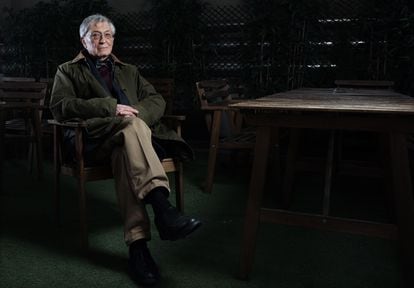
You can observe Babelia in Facebook and xor enroll right here to obtain our weekly publication.
Subscribe to proceed studying
Read with out limits
_


